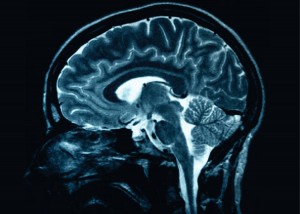Exercise Can Protect Brain From Alzheimers, Studies Show
Jul 23rd, 2012
 Exercise can do wonders for your body. Even with just thirty minutes of proper exercise, every day can maintain strength, balance, flexibility, and endurance. New studies have shown that exercise also helps maintain mental health in older people. The good news is your brain will get this benefit no matter how old you are.
Exercise can do wonders for your body. Even with just thirty minutes of proper exercise, every day can maintain strength, balance, flexibility, and endurance. New studies have shown that exercise also helps maintain mental health in older people. The good news is your brain will get this benefit no matter how old you are.
This week at the Alzheimer’s Association International Conference in Vancouver, four studies presented evidence that links regular exercise consisting of both aerobic and strength training to better memory and reduction of momentary mental lapses commonly associated with old age.
A study from the University of Pittsburgh showed that adults who start working out after age 65 have an increase in brain size and function. For the study, 120 inactive adults were divided into two groups. One group did moderate-intensity walking for one year, while the other did stretching-toning for the same amount of time.
After one year, scientists used MRI to scan the participants’ brains and found that those in the walking group had improved memory and showed an increase in the size and function of the hippocampus, the brain’s center for memory forming, organizing, and storing, compared to the stretching-toning group.
“Our findings suggest that the aging brain remains modifiable and that sedentary older adults can benefit from starting a moderate walking regimen,” said Dr. Kirk Erickson, lead author of the study.
The second study from the National Center for Geriatrics and Gerontology in Japan compared two groups of adults between 65 and 93 years who were already diagnosed with mild cognitive impairment (MCI), a precursor to Alzheimer’s or dementia. One group was assigned to undergo a multifaceted exercise program and the other group only attended health-education classes but did not exercise. After one year, researchers noted improvements in memory and language skills among the exercise group.
Another study from the University of British Columbia in Vancouver studied women with MCI between 70 and 80 years. They were divided into three groups according to their tasks: aerobic training, balance-and-tone training, and resistance training. For six months, the participants exercised twice a week. Researchers have found that the group who performed strength training benefited the most. They beat out the two other groups in various cognitive tests that measure attention, memory, and higher brain functions like reasoning.
Finally, a study from the University of British Columbia involving 155 women aged between 65 and 75 years showed that resistance training gives more improvements in memory compared to balance-and-tone training.
These studies highlight the value of adding strength training to your exercise routine. Beyond physical benefits, regular exercise boosts brain function and may protect against cognitive decline, such as Alzheimer’s. With proper health insurance coverage, you can access programs that support both physical and mental well-being as you age.
Related posts from our blog:
No related posts.